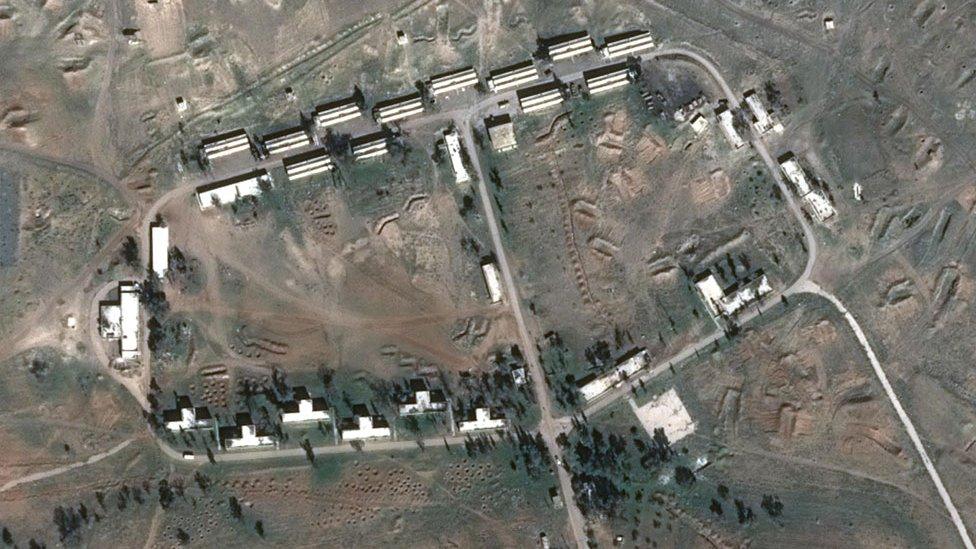Syria 'chemical attack': Russia and US in fierce row at UN
- Published
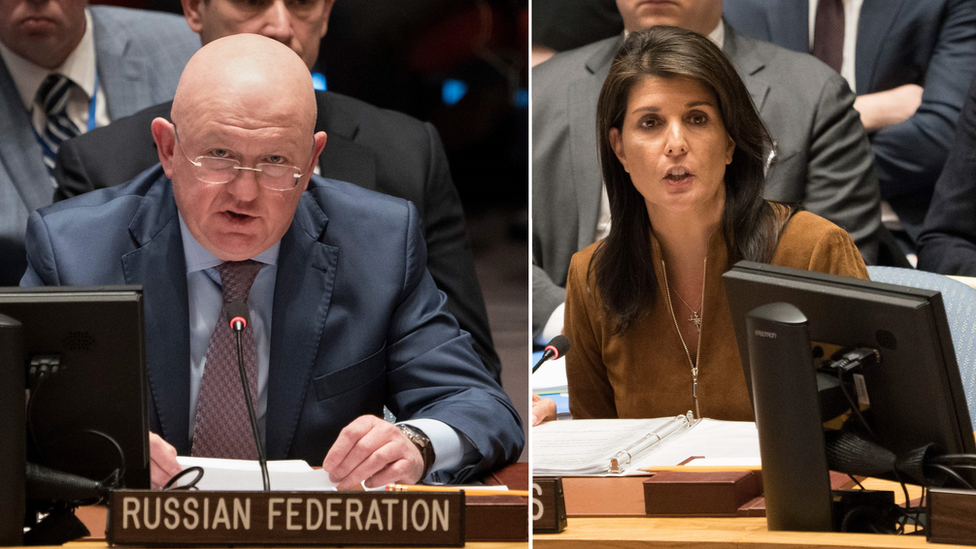
The US and Russia have traded barbs at a UN Security Council meeting on the alleged chemical attack in Syria.
Russian representative Vassily Nebenzia said the incident in Douma was staged and that US military action in response could have "grave repercussions".
US envoy Nikki Haley said Russia - a Syrian military backer - had the "blood of Syrian children" on its hands.
Earlier, the UN human rights chief said world powers were treating chemical weapons use with a "collective shrug".
US President Donald Trump pledged later on Monday that the incident would "be met forcefully", adding that the US had a lot of military options and a decision on a response would be taken "tonight" or "shortly".
Calling Syrian President Bashar al-Assad a "monster", Ms Haley said that if the UN Security Council acts or not, "either way, the United States will respond".
"Meetings are ongoing, important decisions are being weighed even as we speak," she said.
Washington has not ruled out military strikes. In April last year, the US fired cruise missiles at a Syrian airbase after a Sarin nerve agent attack on the opposition-held town of Khan Sheikhoun killed more than 80 people. International investigators held the Syrian government responsible.
Trump: Suspected Syria chemical attack 'will be met forcefully'
What happened on Saturday?
The Syrian-American Medical Society said more than 500 people were brought to medical centres, external in Douma, in the Eastern Ghouta region, near the capital Damascus, with symptoms "indicative of exposure to a chemical agent".
It said this included breathing difficulties, bluish skin, mouth foaming, corneal burns and "the emission of chlorine-like odour".
Neither the death toll nor what exactly occurred can be verified as the area is blocked off with access denied.
The estimates of how many people died in the suspected chemical attack range from 42 to more than 60 people, but medical groups say numbers could rise as rescue workers gain access to basements where hundreds of families had sought refuge from bombing.
Unverified video shows children being treated after the alleged gas attack
The French representative at the UN Security Council said poison gas had deliberately been used as it could seep down to the basements.
The US, France and UK have led international condemnation of the alleged attack, with the Syrian government and its Russian backers denying any responsibility.
What did Russia say at the UN?
Mr Nebenzia, presenting Russia's case that rebels in Douma staged the event for their own ends, painted the incident and its fallout as part of a US-led effort to hurt Russia with a "broad arsenal of methods", including slander, insults and "hawkish rhetoric".
In an angry statement, he invited investigators from the Organisation for the Prohibition of Chemical Weapons (OPCW) to fly to Syria as soon as Tuesday, saying that Russian troops would escort them to the site of the alleged attack.
Moscow has said its experts have not found "any trace of chlorine or any other chemical substance used against civilians".
'We will make a major decision in next 24-48 hours'
Mr Nebenzia said the tone taken against Russia had gone beyond what was acceptable even during the Cold War and warned against a US military response.
"Armed force under mendacious pretext against Syria, where, at the request of the legitimate government of a country, Russian troops have been deployed, could lead to grave repercussions," he said.
What is the wider context?
The escalation of tension comes as relations between Russia and the West have plunged to their worst level in decades, following the poisoning in March of an ex-spy in England that the UK blamed on Moscow, and alleged Russian interference in the 2016 US election.
The poisoning of Sergei Skripal and his daughter Yulia with what the British government says was a military-grade Novichok nerve agent of a type developed by Russia led to the mass expulsion of Russian diplomats by Western allies, to which Moscow responded in kind.
What else is happening in Syria?
Following the alleged attack, Syria and Russia reached an evacuation deal with the Jaish al-Islam rebels, who up until now have been holding Douma.
Moscow said military operations there had been halted. Under the deal, 100 buses are said to be moving 8,000 fighters and 40,000 of their relatives out of the battered town. Hostages who had been held by the rebels are being set free.
The development means pro-government forces have now taken full control of the Eastern Ghouta.
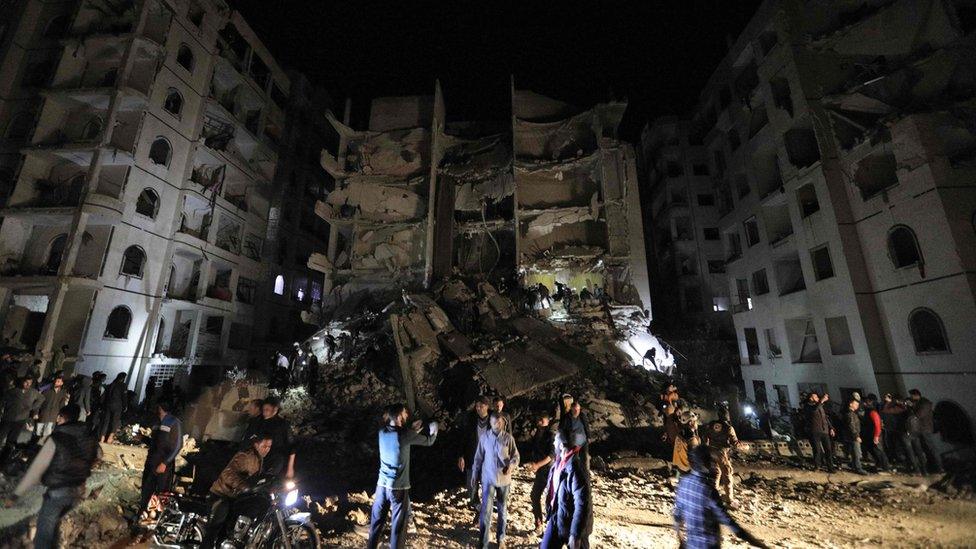
Analysts say this is President Assad's biggest military success since the fall of Aleppo in 2016. It follows a weeks-long government offensive in which more than 1,600 people were killed.
Separately on Monday, monitors said at least 13 civilians were killed and scores injured in the north-western city of Idlib, after an explosion that destroyed a large, multi-storey building. The cause of the blast was not clear.
Idlib province is mainly controlled by the jihadist group Hayat Tahrir al-Sham (HTS), an alliance led by a former branch of al-Qaeda. The area has seen a big influx of civilians and fighters from other war-torn regions.
- Published9 April 2018
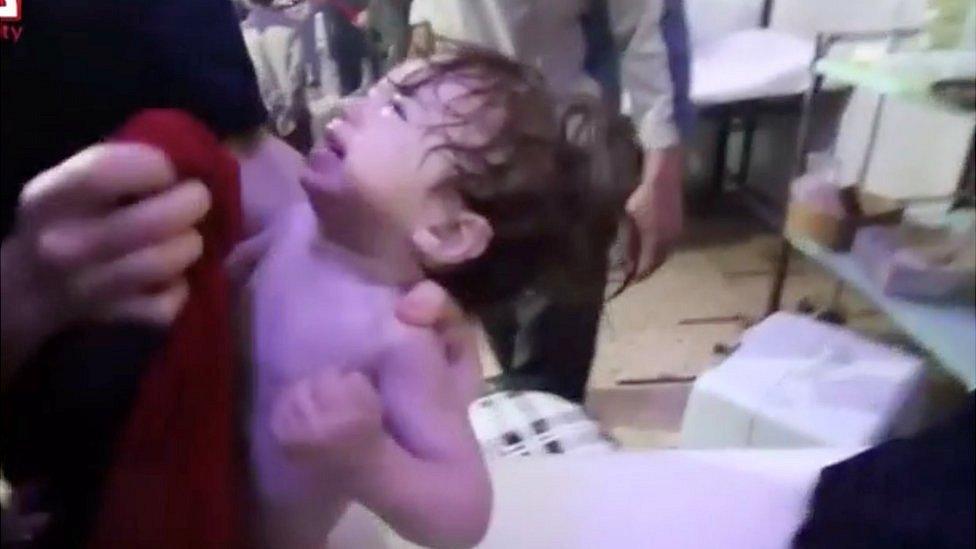
- Published9 April 2018
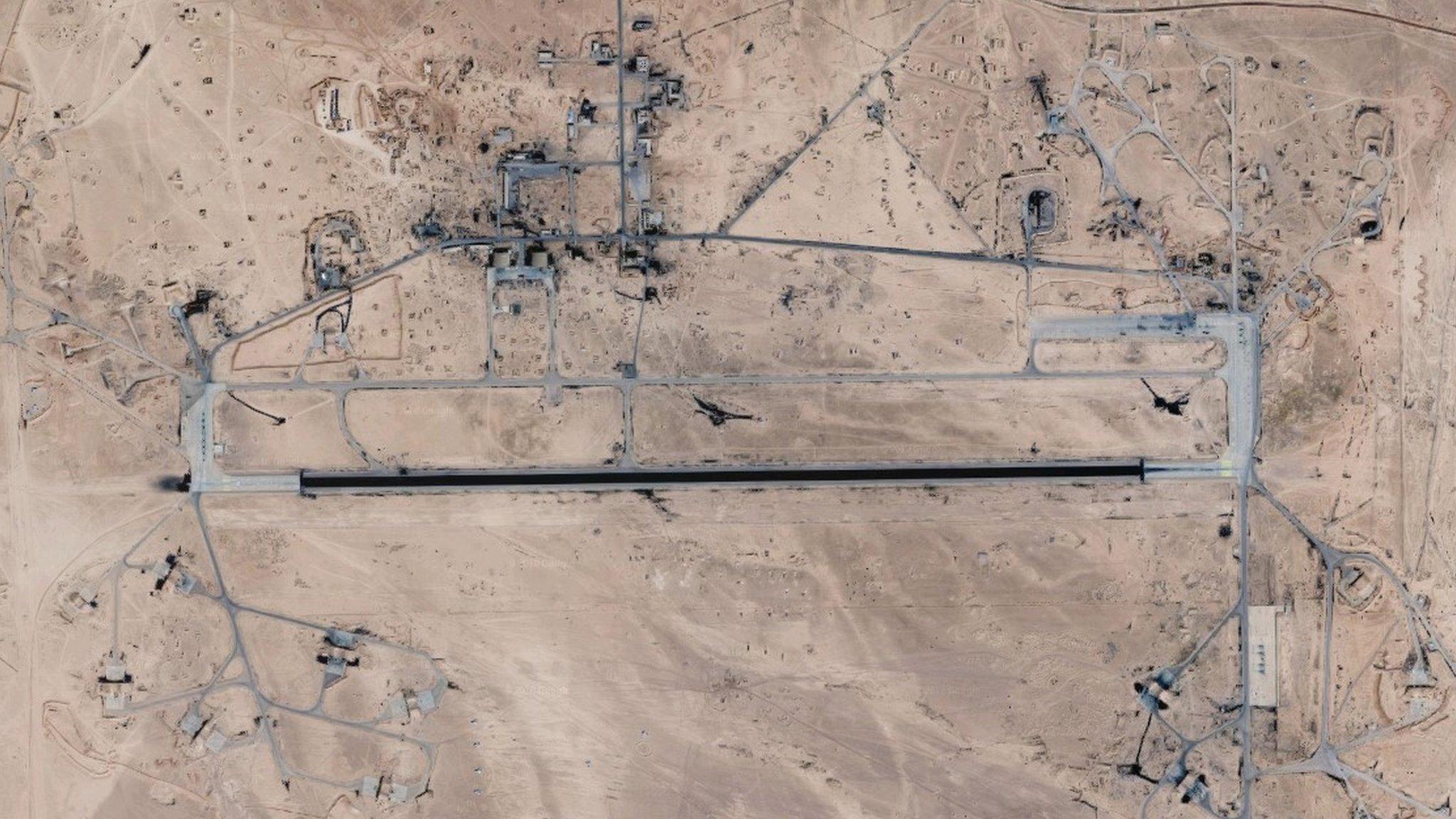
- Published8 April 2018
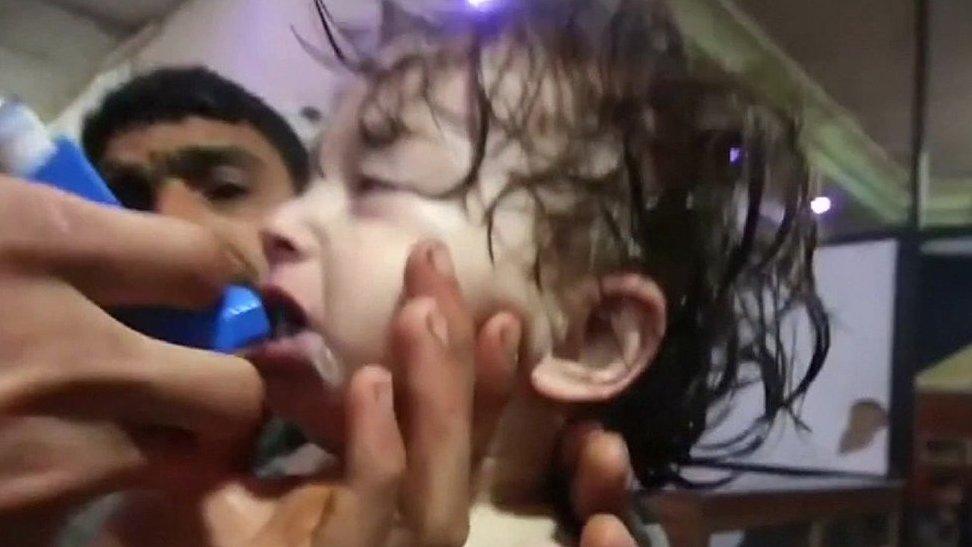
- Published9 April 2018
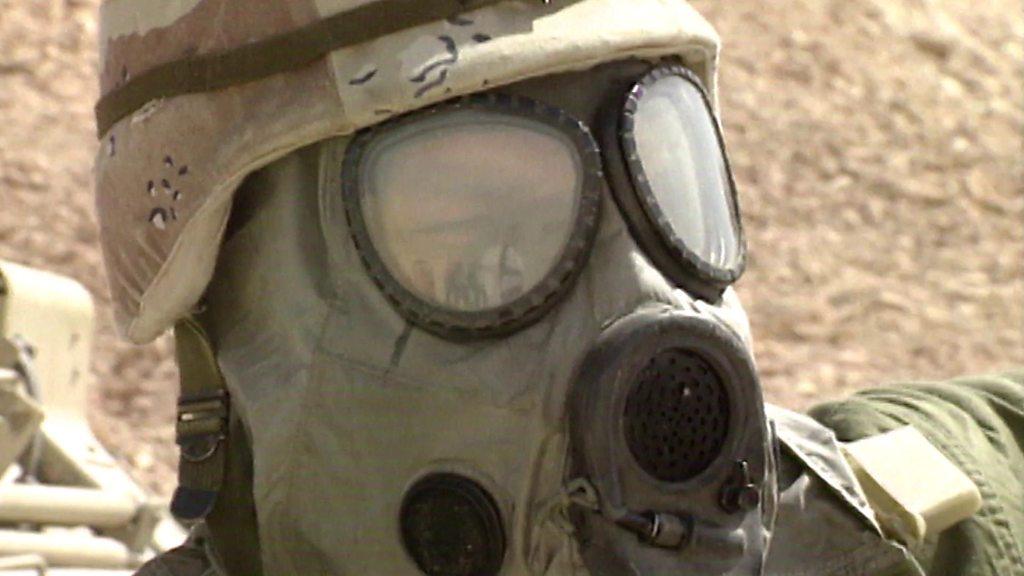
- Published8 April 2018
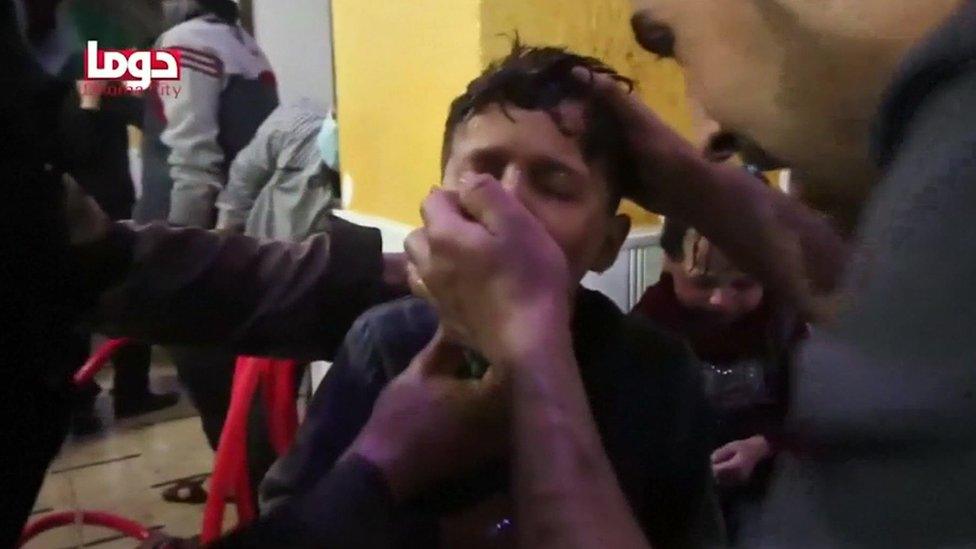
- Published9 April 2018
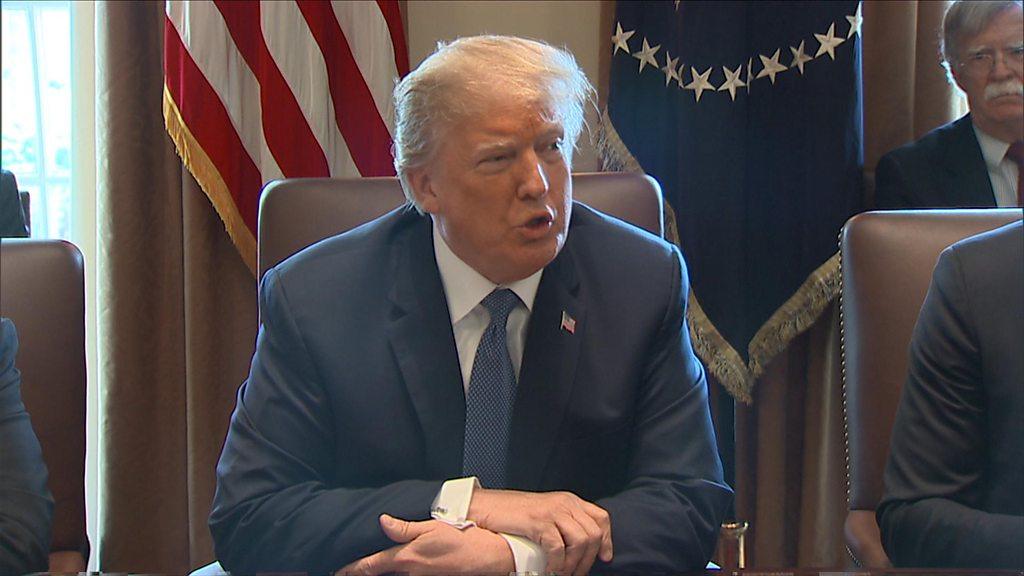
- Published2 May 2023

- Published10 November 2017
